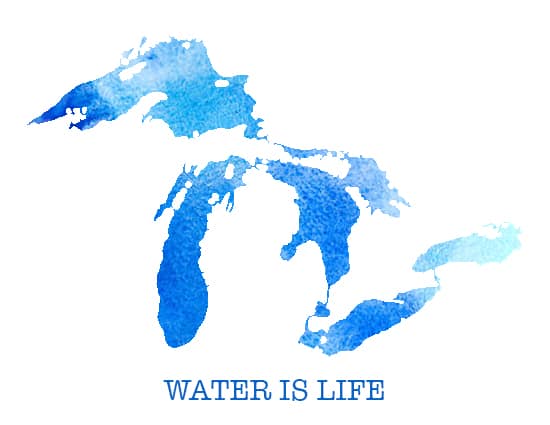June 8 is World Oceans Day, the United Nations day for celebrating the role of the oceans in our everyday life and inspiring action to protect the ocean and sustainably use marine resources.
An outrageous event is happening in North America. Suddenly, in the United States, water is being sold and traded as a commodity for profit. We should have seen this coming. For years now, right under our own noses here in Canada, Nestlé, for example, has settled in places such as Wellington County. They have pumped zillions of gallons of precious groundwater, bottled it in plastic, paid nothing for the water but only a pittance levy of $503.71 per million liters, and sold it back to Canadians and around the world at a shocking price.
Quietly at first, but unable to tolerate what was happening to their precarious water, a group of concerned citizens in Wellington County gathered and began their work to stop Nestle’s water grab on their land. Naming their new initiative, Save Our Water (SOW), the members who are all volunteers, thoroughly studied the water situation and enlisted Kelly Linton, the energetic Mayor of Centre Wellington. Backed by municipal membership, the group became experts in groundwater supply and protecting it at all levels. Since water taking is a provincial responsibility, their stewardship of local water reaches all the way to the provincial legislature where they have ready access to discussing the long-term negative impact of water extraction with politicians. (Join the Fight)
The Save Our Water initiative and the growing involvement of concerned citizens and water protectors is proving to have a successful impact. Last month I had the privilege of being on a Zoom call of over 125 concerned citizens sponsored by Wellington Water Watchers for an update on the new moratorium on taking bottled water from Wellington County’s groundwater.
The Save Our Water volunteers, Mayor Linton and council of Centre Wellington as well as increasing numbers of concerned citizens have been the push behind Nestle’s recent withdrawal from Canada. With one voice, they acclaim, “We are not a willing host for bottled water”.
There is still much for Save Our Water to do concerning the preservation of priceless water in Wellington County. Vigilant oversight lies ahead as the area is projected to double in size by 2041 and the local Middlebrook well has been purchased for 4.3 billion by big companies, including some in the USA.
Throughout the intervening years, Save Our Water will be there, studying, advocating, and influencing the rest of the world who come to them for advice as they are already doing. Every local level in every municipality in North America needs a Save Our Water group to protect precious water and battle to ban water as a commodity. There is an urgent cry across nations: access to clean, potable water is a human right.
-Sister Jean Moylan, csj
The Sisters of St. Joseph are proud to be a BLUE COMMUNITY so that we can protect water as a shared commons, sacred gift, and human right.
Learn about their current campaigns







